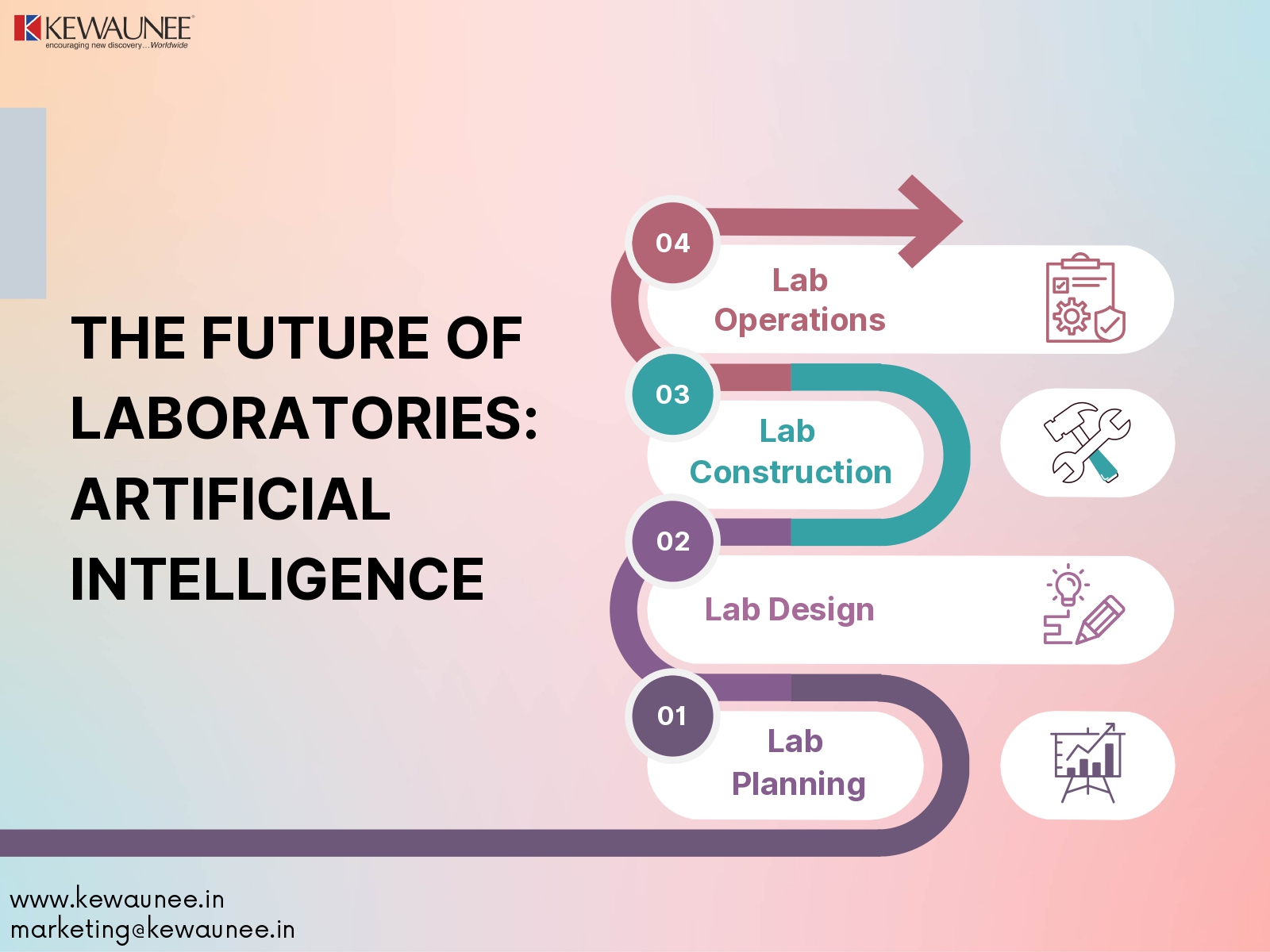The Future of Laboratories: AI in Planning, Design, Construction, and Operations
As technology continues to advance, artificial intelligence (AI) has become increasingly important in various industries, including laboratory planning, design, construction, and operations.
This blog will explore how AI is transforming laboratories, its benefits, challenges, and regulatory implications.
Understanding AI
Artificial intelligence is a branch of computer science that focuses on creating machines that can learn, reason, and solve problems like humans. In laboratory operations, AI is used for tasks such as data analysis, predictive maintenance, and equipment optimization.
AI has several benefits for laboratory planning, design, and construction, including increased efficiency and improved safety.
AI in Laboratory Planning
When incorporating AI technology into laboratory planning, there are several factors to consider, such as data requirements, infrastructure, and budget. The benefits of AI in laboratory planning include improved decision-making, reduced errors, and increased accuracy.
However, there are also challenges, such as the need for specialized knowledge and potential resistance to change.
AI in Laboratory Design
Integrating AI into laboratory design involves designing systems that can automate processes and reduce manual labour. Benefits of integrating AI technology into laboratory design include increased efficiency, improved safety, and reduced costs.
However, challenges such as increased complexity and the need for specialized knowledge can make it challenging.
AI in Laboratory Construction
AI can also be used in laboratory construction to improve efficiency and reduce costs. For instance, AI can be used in scheduling and resource allocation, as well as quality control.
The benefits of incorporating AI technology into laboratory construction include improved accuracy, reduced errors, and increased efficiency. However, there are challenges such as the need for specialized knowledge and potential resistance to change.
AI in Laboratory Operations
In laboratory operations, AI is used for tasks such as data analysis, predictive maintenance, and equipment optimization. The benefits of incorporating AI technology into laboratory operations include increased efficiency, improved safety, and reduced costs.
However, there are also challenges, such as data management and potential ethical concerns.
Implications of AI in Laboratory Planning, Design, Construction, and Operations
The impact of AI on laboratory safety, efficiency, and productivity cannot be overstated. AI has the potential to revolutionize laboratory operations, but there are also regulatory implications to consider. The impact of AI on laboratory costs and maintenance is also an important consideration.
Compliance and Regulations for AI in Laboratories
Regulations and standards are necessary to ensure the safe and ethical use of AI in laboratory operations. Compliance with relevant standards and regulations is crucial to avoid legal and ethical issues.
Future of AI in Laboratory Planning, Design, Construction, and Operations
As AI technology continues to evolve, emerging trends such as machine learning and neural networks will have a significant impact on laboratory planning, design, construction, and operations.
The potential for AI to improve laboratory operations is immense, and it is important for laboratory professionals to stay up to date on emerging trends.
Conclusion
In conclusion, AI technology has the potential to transform laboratory planning, design, construction, and operations. By incorporating AI technology, laboratories can benefit from increased efficiency, improved safety, and reduced costs.
However, there are also challenges and regulatory implications to consider. As AI technology continues to evolve, it is important for laboratory professionals to stay up to date on emerging trends and best practices.
Comments are closed.











